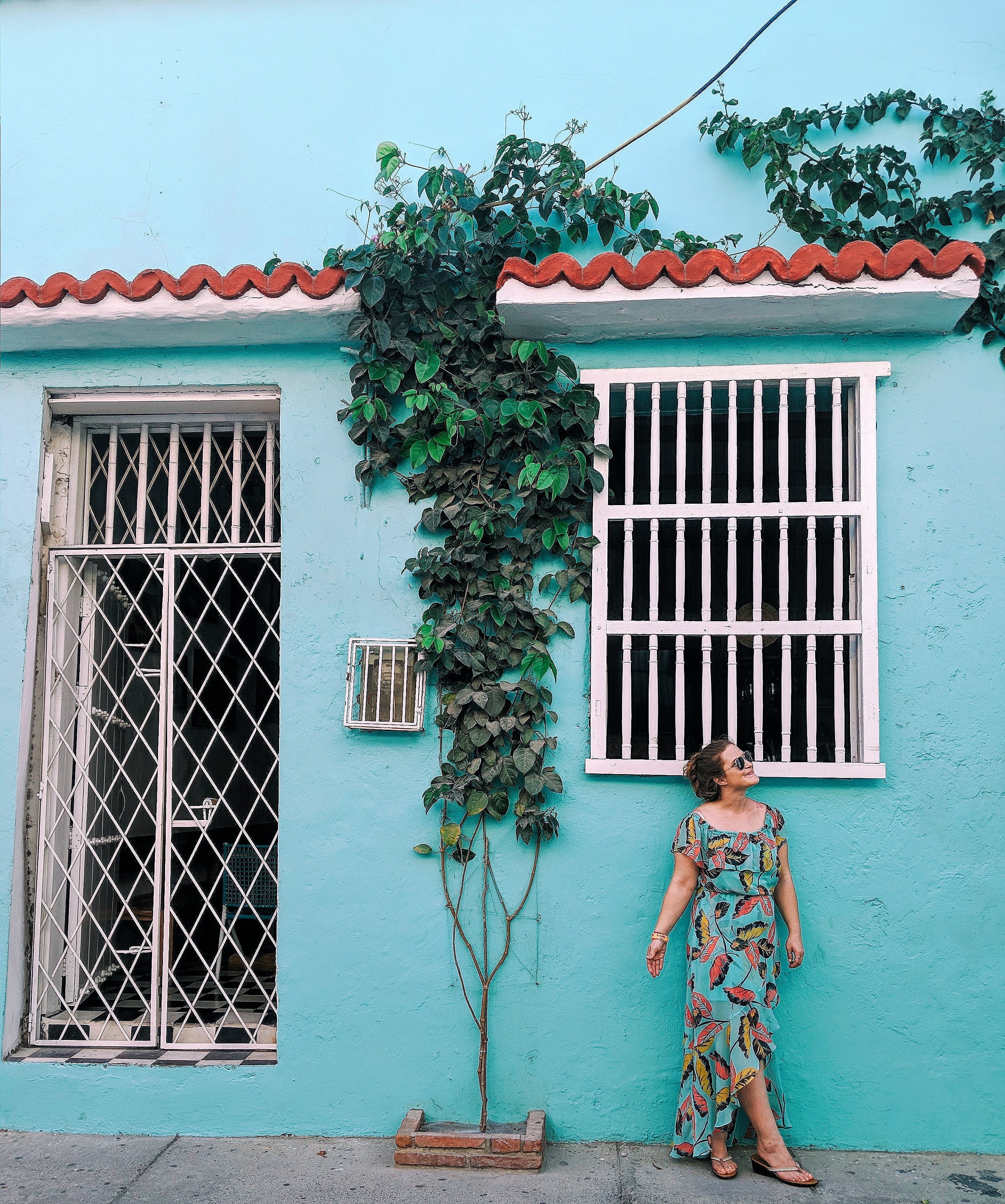Marika is the face behind the blog Clumsy Girl Travels. She writes about unique experiences around the world all while overcoming the challenges of traveling with Ataxia, a hidden disability. Follow her on Instagram.
All opinions are the author’s own. This site contains affiliate links. We may receive a commission for purchases made through these links, at no extra cost to you.
My first time travelling solo was something I never thought was possible because I have a disability called ataxia. I grew up being told that life was going to be hard for me. Everyone said I would need help taking care of myself and I wouldn’t be able to be independent.
I was told this so often that I started to believe it and accepted it and I wouldn’t be able to do much of anything on my own.

Fast forward 12 years and I was at the airport, tears in my eyes, hugging my mom goodbye as I embarked on my first solo trip to Ireland. I was scared out of my mind but excited that I beat the odds and proved that having ataxia would not dictate how I lived my life.
What is Ataxia?
Ataxia is a rare degenerative neurological condition that affects a person’s ability to walk, talk and use fine motor skills. Many people think those with ataxia are drunk. Due to it being degenerative, symptoms can worsen over time. There are several different types of ataxias and some are worse than others. I have Episodic ataxia Type 2 and luckily my symptoms aren’t as bad as some other types.
Symptoms can include:
- Migraines
- Lack of coordination
- A clumsy gait
- Head and hand tremors
- Aphasia (speech impairments)
- Fatigue

How is Ataxia Treated?
There is no cure for ataxia. There are ways to prolong the symptoms from getting worse and that includes physical & occupational therapy (PT & OT). I have been going to PT & OT since I was 3 and if it wasn’t for all the therapy I have had over the years, my symptoms would probably be a lot worse.
I’ve also been on countless medications throughout my life and they have been lifesavers. One medication I am on is used to help those with MS (ataxia and MS have similar symptoms).
Unfortunately, the fact that my medication isn’t for those with ataxia, insurance won’t pay for it and it’s about $1 per pill. I have to get it specially made from a compounding pharmacy, but without it, I have debilitating migraines.
Travelling with Ataxia

Growing up hearing from some of my doctors and teachers that being independent wouldn’t be an option for me was hard. Luckily, I had an incredible support network of family and friends that always believed in me and supported my dreams – and travelling was one of them.
Travelling with ataxia has been something I have had to learn to do and it hasn’t always been easy. Since ataxia is a hidden disability, people can’t see the struggles I have.
If I swerve when I walk, people assume I am drunk. If I ask for help to carry a tray of food to my table, people assume I am lazy. If I pre-board on a flight, people assume nothing is wrong with me and think I just want to board early.
People can’t see what I experience and it makes travelling really difficult for me at times. If I swerve, it’s because my balance is off and depending on the time of day, my balance is worse, which causes me to trip and fall more often.
Excited to start your own travels?
Begin to explore the world with Lonely Planet’s Best in Travel 2020. Start reading about all the amazing places you can visit – and start to plan your first trip!
If I ask for help carrying food to my table, it’s because I have dropped a tray of food on the floor and I don’t want to do that again! If I need to pre-board it’s because I almost knocked a tray of drinks out of a flight attendant’s hand, and I need more time getting to my seat.
I ask for help when I need it and have learned that I can’t focus all my time and energy on what other people think of me because, at the end of the day, I know what my limitations are when travelling with a hidden disability.
The Hardest Parts of Travelling with Ataxia
Travelling with ataxia brings on its own hardships and some are difficult to overcome.

Access to medication: Before I leave on a trip I have to make sure I have enough medication to last me the whole time. One of my medications would be impossible to fill abroad so if I ran out my mum would have to send me a bottle, but usually, I pack enough for my trip and have never run out.
Fatigue: One symptom of ataxia is fatigue. I can get exhausted just by walking around for a couple of hours or by doing something low key like wandering around a museum. I take nap time very seriously.!
Fitting in with other travellers: one of my favourite parts of travelling is meeting and connecting with other travellers but sometimes that’s easier said than done. I have had to opt-out of group activities like riding a bike (due to a lack of balance) or hiking (due to fatigue). People are generally pretty understanding about it, but it still sucks that I can’t partake in certain activities.
I have to pick where I travel carefully: I can’t drive, hike or ride a bike and so when I plan a trip I have to be very careful about choosing what destination I visit. It needs to be accessible using public transportation or walkable.
Migraines can ruin a day for me: When I have a migraine the day ends for me. I have a particular type of migraine called ‘complicated migraines’. Doctors have compared them to seizures. When I get one, I go into complete lockdown. The pain is excruciating and travelling solo can be dangerous if I get one. Once one hits, I have to lie down straight away and sometimes they last a few hours to an entire day and I can’t be woken up or talk, until it passes.
Keep count of all the countries you’ve visited!
A great present for any traveller. Scratch off all the countries you’ve visited with this Scratch the World Travel Map.
The Best Parts of Travelling with Ataxia
Independence: Growing up, I was led to believe independence was only for those who didn’t have disabilities and now I am travelling the world solo and enjoying every second of the independence I have.
Educating people on ataxia: Travelling has allowed me the opportunity on multiple occasions to educate people on ataxia. Most people have no idea what my condition is and the fact that I can be an advocate and talk about my disability so openly is truly an amazing part of travelling and people, for the most part, are really understanding.
Read more in the ‘Travelling with a mental illness’ series:
New experiences: Travelling had led to some unique experiences. I have taken a traditional crown making workshop in Latvia, a cooking class at a farm in Croatia, soaked in a bathtub full of beer in Prague, and my list goes on and on. Travelling is also how I learned I can’t hike!
I never thought in a million years I would be traveling the world alone. Travelling has shown me what I am capable of and that having a disability shouldn’t be what defines me.


Thank you
I thought I was alone
I have a family history of hereditary ataxia and am showing some symptoms (mainly terrible balance, and falls). I feel like I limit the places I can travel to because I am afraid of falls (boats, bikes, etc).
I am so relieved that someone like me is able to travel and enjoy themselves while knowing limitations.
Thank you for your travel story